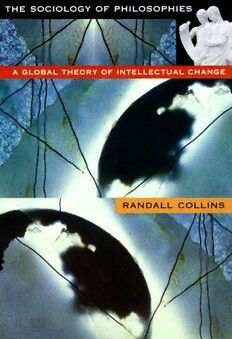
The Sociology of Philosophies: A Global Theory of Intellectual Change PDF
1121 Pages·1998·4.209 MB·English
Most books are stored in the elastic cloud where traffic is expensive. For this reason, we have a limit on daily download.
Preview The Sociology of Philosophies: A Global Theory of Intellectual Change
Description:
A comprehensive history of world philosophy, this book is also a social history of global intellectual life. Eschewing polemics, it presents a sophisticated view of the multiple cultures of world history, disintegrates stereotypes of regional cultures, and reveals how creativity is driven by a range of conflicting positions in each community. We see what is sociologically universal about Western, Indian, and Asian intellectual life, as well as what combinations of social ingredients have produced their divergent pathways. Through network diagrams and sustained narrative, Randall Collins traces the development of philosophical thought in China, Japan, India, ancient Greece, the medieval Islamic and Jewish world, medieval Christendom, and modern Europe. What emerges from this history is a general theory of intellectual life, one that avoids both the reduction of ideas to the influences of society at large and the purely contingent local construction of meanings. Instead, Collins focuses on the social locations where sophisticated ideas are formed: the patterns of intellectual networks and their inner divisions and conflicts. His theory describes how, when the material bases of intellectual life shift with the rise and fall of religions, educational systems, and publishing markets, opportunities open for some networks to expand while others shrink and close down. It locates individuals - among them celebrated thinkers like Socrates, Aristotle, Chu Hsi, Shankara, Wittgenstein, and Heidegger - within these networks and explains the emotional and symbolic processes that, by forming coalitions within the mind, ultimately bring about original and historically successful ideas. A self-reflexive sociological philosophy of intellectual life, Collins's work aims to open a path beyond relativsm and realism.
See more
The list of books you might like
Most books are stored in the elastic cloud where traffic is expensive. For this reason, we have a limit on daily download.
